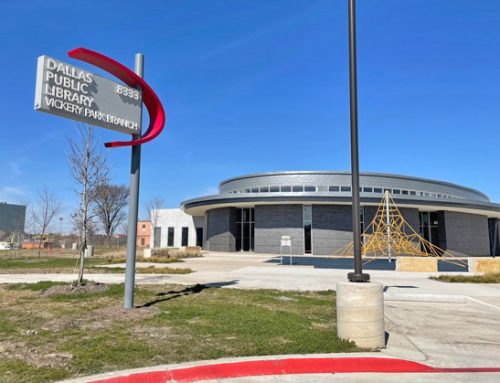Trissie Osborn is always the cheerful sort, but catch her on a Thursday and you’ll find the Mississippi native happy as a hound dog with two tails. That’s when she welcomes dementia patients to Journey, the respite program she created and leads at Highland Park United Methodist Church. Participants and their families sing the praises of Osborn and her many volunteers, but she thanks God for the heaping helping of blessings the program returns to her each week.
Osborn had been directing the church’s pastoral care program for congregants 80 and over when a church member came to her seeking help with her husband, a retired minister. Caring for him since his dementia diagnosis had become a full-time job — and then some. She realized that for her sake, and his, she needed a break.
“We didn’t have the bandwidth to create a new program at the time, but she kept coming back,” recalls Osborn, who began researching programs around North Texas, attending training sessions and talking to knowledgeable folks working at retirement homes and memory care centers. She read literature and watched videos, determined that she’d only start the program if she could do it right.
No one in her family has suffered from dementia, but Osborn had compassion for its devastating effects. About 20 years before, her mom had suffered a massive stroke at age 70.
“That really rocked my world,” Osborn admits. “She was so outgoing. She ran circles around me. My parents had moved to Dallas just before that, and she was helping us raise our three small boys at the time. She was a wonderful mom, grandmother and mother-in-law, and she was an extension of the care of our family.”
Boots Mohead moved back to Mississippi to receive extensive medical support after her stroke, and Osborn traveled back and forth to care for her mom before her death at age 84. Though her mom’s ailments were different, the lessons she learned have been invaluable.
“Every day is different, and it requires a tremendous amount of patience,” she says. “It can be extremely frustrating to the person who has been active and vivacious but is now barely able to walk, and, at times, finds their thoughts are confused. They may know what to say but not how to get it out. Their soul remains, and they have so much left to give.”
Journey began with nine participants and nine volunteers, and quickly expanded to a full class of 15. They begin each day with breakfast and social time, followed by discussions with a weekly theme. They enjoy music of an era from their younger days and do “sit and fit” exercises in their chairs. A catered hot lunch is followed by more themed lessons and games. Osborn is a Southern party planner with a Pinterester’s heart, so she works hard to balance creating fun experiences while not overwhelming her charges.
“It’s been a learning experience. Things need to be adjusted because everyone is in a different place along their dementia journey. People need to get out, socialize and be around people. They need to use their skills and feel valued.”
Caregivers use their four hours as they wish — some go to lunch or a movie with a friend. Some attend to their own doctor visits or hair appointments after transporting mom to all of hers. Some go home exhausted and take a nap. Many have begun attending the program’s support group for caregivers — sharing tips, swapping doctors’ notes and trading resources.
“They have formed a community as they drop off and pick up. No matter where you are on the journey, it’s difficult, and they support one another. When they drop off at 10 they may be stressed, but when they pick up at 2 they are different people. It’s amazing what four hours can do. And it’s important to know someone cares.”
Osborn asks her volunteers to commit to once per month, but most come every week. The only preparation involves learning to slow their pace.
“It’s fulfilling and rewarding to engage people and see them so full of joy and gratitude. The caregivers are the heroes at home, and the volunteers are the heroes here at Journey. They are amazing.”
Osborn hopes more churches and synagogues in the area will create programs like Journey, since the need is great and the wait list is growing. Participating in Journey is free — astounding since some programs charge up to $100 a day. Email OsbornT@hpumc.org to donate to the program, add your loved one’s name to the list or become a volunteer. If you can’t commit to four hours, Osborn has another idea.
“Just go sit with your neighbor. Help them with yard work or bake them cookies. Talk to them and give them time to answer. The caregiver needs to know they’re safe with you. There is so much we can do — and you can do your little part.”





